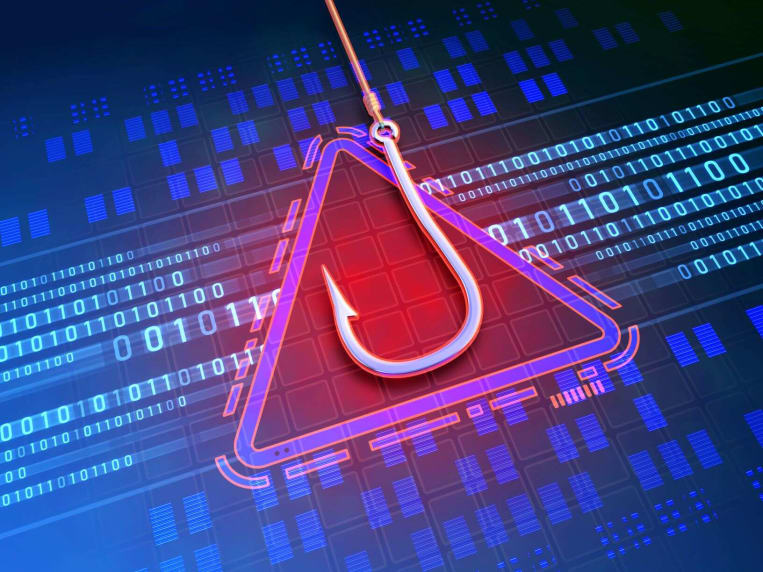
BBB Tip: Phishing scams can come in text messages, prize offers

(Getty Images)
The Better Business Bureau says it is important for everyone to be aware of phishing scams. These can come in the form of prize offers, threatened punishments, or even a text message. Sometimes, the sender relies on a victim's curiosity to prompt a click or download of something dangerous. Other phishing formats may not have any links to click but, instead, a phone call to inquire about an account or subscription.
Any unsolicited or unexpected communications asking for personal information or telling you to download an attachment is a red flag. Many of these messages are from impostors pretending to be trustworthy businesses and organizations. They are "phishing" for Social Security or Social Insurance numbers, banking information, passwords, credit card information, or other personal details for use in identity theft. Don't fall for the bait!
In a recent version of phishing reported to BBB Scam Tracker, the scammer pretends to be a process server: "The scammer said I had commited[sic] a crime and were acting like a local police department. They said I would not be prosecuted if I gave them $500." Read more about the process server phishing scam.
How the scam works:
Con artists have a creative variety of cover stories to disguise their true intentions. Phishing messages typically use one of three methods to fool victims:
- The message promises a reward (gift card, free item);
- Threatens a punishment (unpaid taxes, missed jury duty, deactivated bank account);
- It appears harmless (a file or link from a manager or coworker).
Phishing scams tend to follow a pattern. The victim receives an email, phone call or text message (called "smishing" or SMS phishing). The message urges the target to click a link, share information, call a phone number, or download an attachment that likely contains malware. In the case of an email or text, the link frequently leads to a form that prompts the target to enter personal information.
Think twice before downloading anything from the internet, especially if it's an attachment from an anonymous sender. Scammers will hide malware in an attachment, and once downloaded, it can wreak havoc on your personal device or steal your personal information. If you're online at home, the scammer may also steal the IP address and then proceed to connect to any other device connected to your home Wi-Fi.
Businesses can also be phished. One business reported to BBB Scam Tracker in March 2024, "The scammer asked to confirm information about our business, and after receiving my name sent us an invoice for services not requested or desired. We did not pay." See more scams targeting businesses.
Tips to avoid this scam:
- If something sounds suspicious, call the company or check the company website directly. Don't click on links in an unexpected email – type the URL for the company into the browser or do a web search to find the right website.
- Don't click, download, or open anything from an anonymous sender. This is likely an attempt to gain access to your personal information or install malware on your computer.
- Question generic emails. Scammers cast a wide net by including little or no specific information in their fake emails. Always be wary of unsolicited messages that don't contain your name, the last digits of your account number or other personalizing information.
Specific examples:
- Charged for an iPhone you didn't buy? Don't panic
- Google Business Profile messages might be a phishing scheme
- Fake copyright email scares Instagram users into sharing passwords
- Business email compromise (BEC) scams
For more information
Learn how to Spot a Scam with BBB's tips.
Learn how to protect yourself by going to "10 Steps to Avoid Scams."
Additional information on phishing scams can be found from the Federal Trade Commission.
Go to BBB Scam Tracker to report a scam.
Still Need Assistance?
Contact Your Local BBB
Your local Better Business Bureau can assist you with finding businesses you can trust. Start With Trust®.
Additional Resources
Let BBB help you resolve problems with a business
Research and report on scams and fraud using BBB Scam Tracker
Learn more about the value of BBB Accreditation